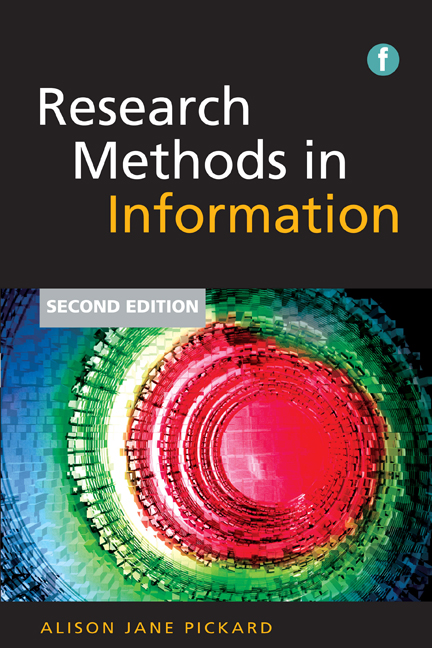Book contents
- Frontmatter
- Contents
- Preface to the second edition
- Acknowledgements
- Introduction
- Part 1 Starting the research process
- Part 2 Research methods
- 8 Case studies
- 9 Surveys
- 10 Experimental research
- 11 Usability testing
- 12 Ethnography
- 13 Delphi study
- 14 Action research
- 15 Historical research
- 16 Grounded theory: method or analysis?
- Part 3 Data collection techniques
- Part 4 Data analysis and research presentation
- Part 5 Glossary and references
- Index
16 - Grounded theory: method or analysis?
from Part 2 - Research methods
Published online by Cambridge University Press: 08 June 2018
- Frontmatter
- Contents
- Preface to the second edition
- Acknowledgements
- Introduction
- Part 1 Starting the research process
- Part 2 Research methods
- 8 Case studies
- 9 Surveys
- 10 Experimental research
- 11 Usability testing
- 12 Ethnography
- 13 Delphi study
- 14 Action research
- 15 Historical research
- 16 Grounded theory: method or analysis?
- Part 3 Data collection techniques
- Part 4 Data analysis and research presentation
- Part 5 Glossary and references
- Index
Summary
Over the years after its inception in 1967 the term grounded theory has been packed with multiple meanings, but also fraught by numerous misunderstandings, and complicated by competing versions.
(Charmaz, 2006, 177)Introduction
I am not completely convinced that this is the right place in this book for a discussion of grounded theory; it is here because it is so often referred to as a ‘research method’. Grounded theory (see Example 16.1 on page 185) is an approach that uses ‘simultaneous data collection and analysis’ (Charmaz, 2006, 20) and as such can be applied in ethnography, case study, historical or action research. It is more about how data is collected and analysed than about the entire research design. Grounded theory is a process of qualitative analysis, not a research method; it is a ‘general method of comparative analysis’ (Glaser, 1978, 116). Although taking a grounded theory approach will influence the design of a research method – for example, in pure grounded theory the literature review very often comes after the analysis of empirical data (Charmaz, 2006) – it is not a research method in its own right.
Grounded theory is described as ‘a strategy for handling data in research, providing modes of conceptualisation for describing and explaining’ (Glaser and Strauss, 1967, 3). This is supported by Barney Glaser, who consistently refers to ‘grounded theory analysis’ and when making reference to the ways in which data can be gathered makes no reference to this as a research method (Glaser, 1998). The Discovery of Grounded Theory (Glaser and Strauss, 1967) offered a systematic approach to qualitative research practice, emphasizing that qualitative research had a logic of its own, and for the first time practical guidelines were offered in applying that logic.
Since 1967 the two originators have taken very different paths. Strauss (1987) and Strauss and Corbin (1990, 1994 and 1998) present a systematic and what some describe as ‘rigid’ approach to grounded theory analysis. Many claim their approach has moved too far from the original concept of grounded theory and suggest that the constant comparative method of Strauss and Corbin has changed the way data is used, from the concept of emerging theory, to theory being forced: ‘the technical tail is beginning to wag the theoretical dog’ (Melia, 1996, 371).
- Type
- Chapter
- Information
- Research Methods in Information , pp. 179 - 188Publisher: FacetPrint publication year: 2013



